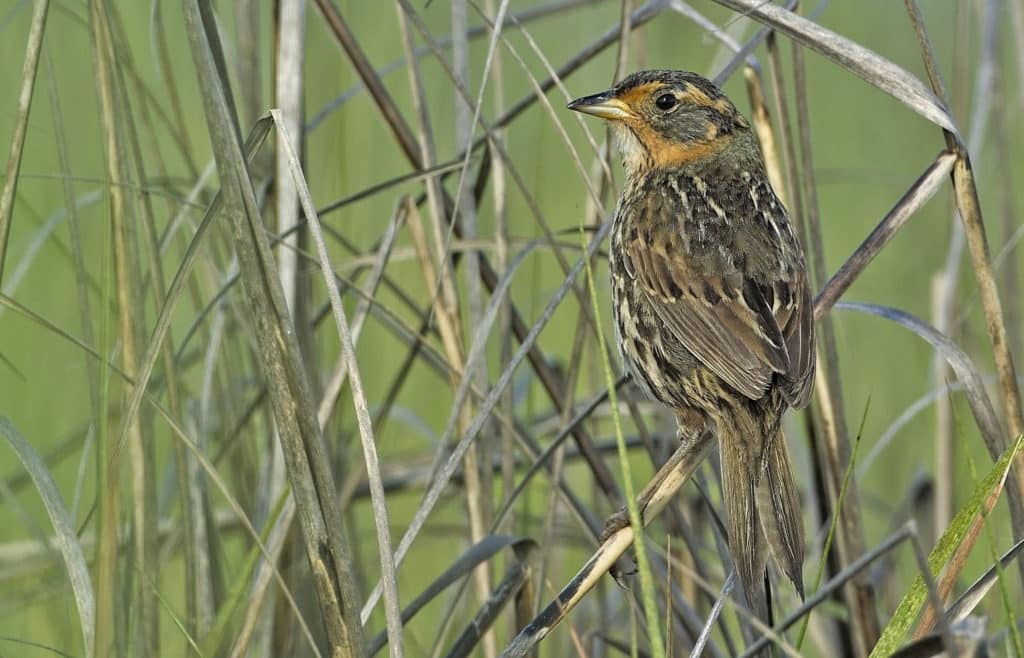
On Wednesday, April 5, the Maine Legislature’s Environment and Natural Resources Committee will hold a public hearing on LD 1246, An Act to Include Endangered and Threatened Species Habitat in the Definition of “Significant Wildlife Habitat” Under the Natural Resources Protection Act. The bill seeks to expand the circumstances in which the Maine Departments of Environmental Protection and Inland Fisheries and Wildlife consult on strategies to avoid and minimize impacts to endangered and threatened species habitat from proposed development.
The bill is aimed at habitat loss and degradation, two of the leading causes of species and population decline. More than 50 species are currently listed as endangered or threatened under the Maine Endangered Species Act (separate from the federal Endangered Species Act), including birds, reptiles, insects, mammals, and mollusks. Eight additional species, including the Bank Swallow, Saltmarsh Sparrow (pictured above), and Tricolored Bat, are expected to be added to this list this year.
Yet inclusion on the state endangered and threatened species list does not ensure protection. Maine’s Department of Environmental Protection is the state’s primary environmental permitting agency, but potential impacts to endangered and threatened species are not considered for the majority of development applications that come before them. Consultation is determined by another law, Maine’s Natural Resources Protection Act, which currently doesn’t require consultation on impacts to endangered and threatened species habitat.
LD 1246 seeks to change that, and proposes to modify the definition of “Significant Wildlife Habitat” in the Natural Resources Protection Act to include the habitat of species appearing on the official state endangered species and state threatened species list. The change would allow the Department of Environmental Protection to require mitigations such as larger culverts, shifted building footprints, wetland buffers, or other protective measures for impacted, vulnerable species.
The bill would be particularly important for species that use upland habitats, which are used by listed species such as the New England Cottontail (a rabbit) and the Blanding’s Turtle. “Upland habitats are critical migratory and nesting areas for many endangered and threatened species,” says Maine Audubon Advocacy Director Eliza Donoghue, “and LD 1246 would help ensure that the impacts to these important habitats can be considered and mitigated before degradation can occur.”
The public hearing is scheduled for Wednesday, April 5, at 1 pm in the Cross Building in Augusta.
